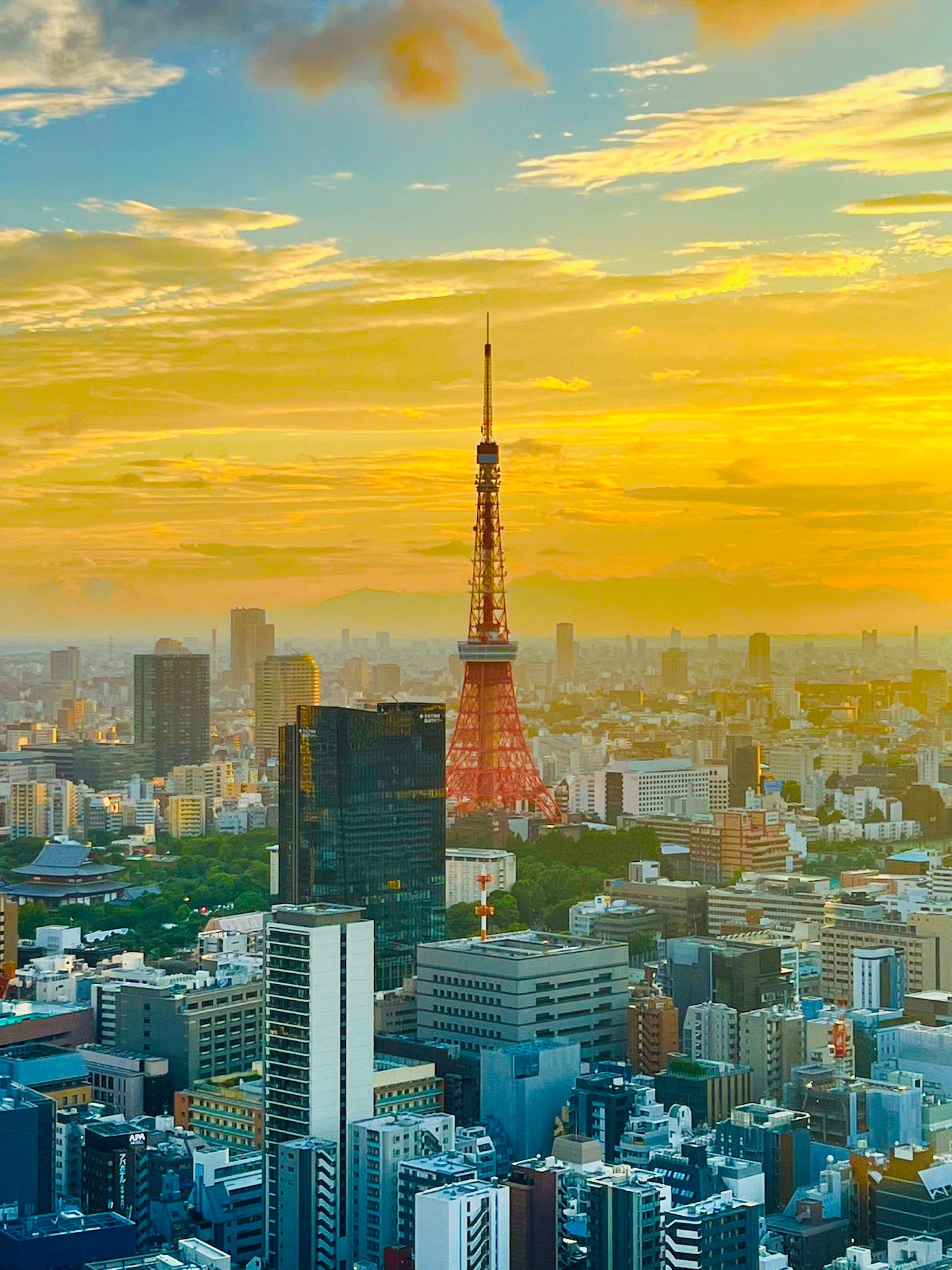Does Tokyo Have the Best Food in the World?
12 restaurants in Tokyo you won’t find in travel guides in the Western Hemisphere
Hometown pride
When I was 16, I left Japan to study abroad at an international boarding school in Europe. Among 250 or so students, over 70 countries were represented, making the school a melting pot of cultures. It was the first time in my life that I was exposed to such a diverse group of cultures all at once.
Even in New York City where I live now, it’s rare to come across such an intense concentration of cultures, languages, and backgrounds in a small radius.
Early on at the school, one thing I was struck by was how proud everyone was of their hometown. No matter where they were from, almost everyone who was not from Japan claimed that their hometown was “the best place in the world.”
This was a shock to me for two reasons. First, because, as someone from a small town in the countryside of Japan, I was so self-conscious of my rural background. Even ashamed of it, if I were honest. Second, it made me wonder how anyone could make such a claim without seeing other places. One would only know something was the best in relation to other things they had seen. I thought “best” was supposed to be relative. Turns out, it didn’t need to be.
Coming from a culture where being humble and modest was considered not only an expected virtue but also a required manner, declaring that my hometown was the best in the world was just unthinkable.
At the same time, I felt jealous of the kind of confidence they exuded. If we thought it was the best, it was okay to be confident, shameless, and unapologetic about it.
What city has the best food in the world?
Last month, I saw an article titled “Does New York City have the best food in the world?” by Nate Silver, one of the most well-known political and sports statisticians working today. He made his name after an election forecasting system he developed predicted the outcomes in forty-nine of the fifty states in the 2008 U.S. presidential election.
The subtitle of this post reads: “And does America have better food than France? Here are 5 ways to answer the question.” In a classic Silver style, he attempts “to develop a taxonomy of what people mean when they argue about the best food cities or the best food countries.”
The content of his article is entertaining. It is an interesting application of statistics to what is otherwise a subjective topic that is hard, if not impossible, to measure. It goes on to draw comparisons between Italy, France, the US, and various American cities, and the quality of food one can get in each place. However, the comparison stops there. The article doesn’t mention culinary destinations like San Sebastian in Spain. It also completely overlooks Asia.

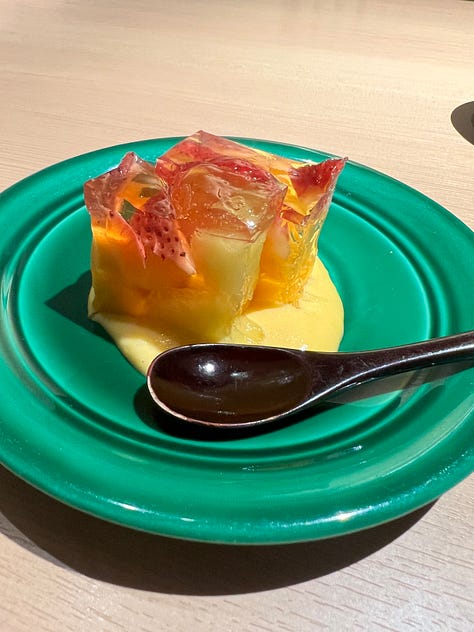
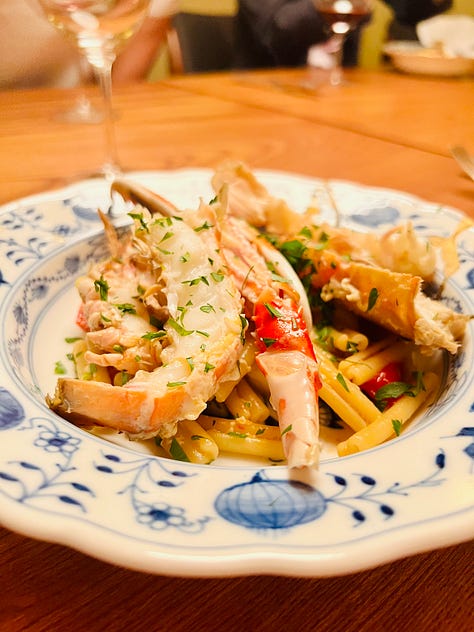


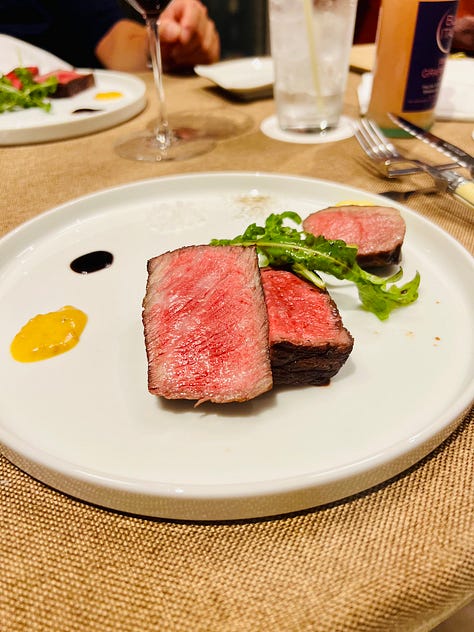
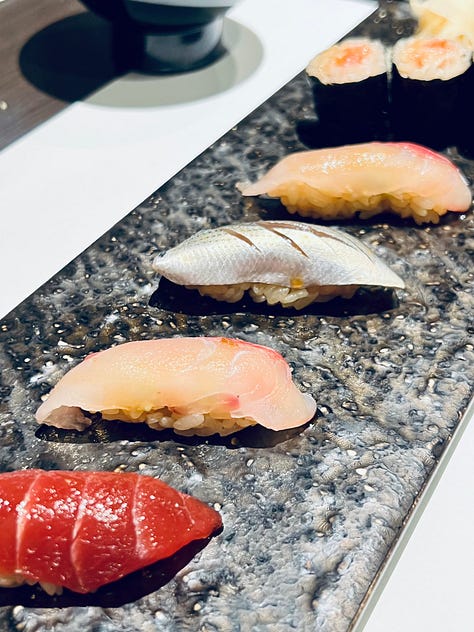
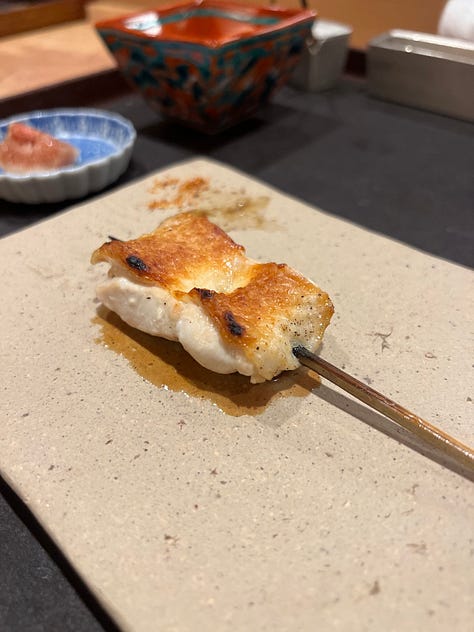

I feel triggered. A strong word, I know.
How can one suggest New York has the best food in the world without mentioning not even one Asian city in their comparison?
To claim superiority without making an objective assessment of the larger context is just so… painfully American.
Don’t get me wrong, I have nothing against the author. On one hand, his use of statistics on politics and sports is consistently persuasive and nothing short of smart. I have a lot of respect for his work.
On the other hand, is this a case of American hyperbole?
Like the World Series of the MLB when it’s 20 American teams and one Canadian team competing. Or the World Champions of the NBA, or the NFL.
Sports commentators and everyone else alike love to argue why America deserves to call those games and winners the best in the world, even if an American athlete who is legitimately the best in the world in a sport calls them out on it.
After all, Mr. Silver is a skilled statistician, a logical debater, and an experienced writer. Part of his, or any writer’s work, is to come up with a punchy title or headline that works. In this case, though, I do not sense a clickbait-y motive behind it.
Regardless of the truthiness of his headline, I clicked it and now we are here. Mission accomplished. His, that is.
Towards the end of the article, Mr. Silver states that “the incredibly rich array of restaurant dining experiences in New York” makes the city “miraculous.” He doesn’t come to a definitive conclusion on whether New York has the best food in the world.
Throughout the article, I keep wondering whether he has even been to Asia.
Now, to be fair, I’m not here to criticize Mr. Silver. He’s not a food critic. I speculate he isn’t all that serious in his analysis of cities with great food. He writes in it that he was “writing this from vacation in Italy.”
The point of his article may be less about proving what city has the best food in the world and more about the fact that there are multiple ways to look at a problem and arrive at an answer.
That, I can appreciate.
Defining “the best”
According to The World Population Review, the most diverse city in the world is Miami (58.3%), followed by Toronto (49.0%), Sydney (45.4%), and Vancouver (42.5%), but the list is based on the percentage of foreign-born residents in that city. New York is the 8th most diverse city with 37.5% of its population being foreign-born.
In addition to these cities, The World Atlas lists Paris, London, São Paulo, Amsterdam, and Los Angeles as the world’s most multicultural cities. Culture drives food so trying to use the multicultural aspect of a city may get us a lot closer to the true meaning of diversity.
With over 5.6 million foreign-born residents, New York is one of the most diverse cities in the world. With diverse cultures come a diverse array of cuisines. New York does have a shot at being the city with the best food.
While we can find great food in any of these cities, other than New York and maybe Paris, it would be a stretch to say that any of these cities has the best food in the world.
My point here is that diversity is not a great measure of the quality of food in a given city.
For the sake of the argument, let’s take the five definitions Mr. Silver offers for answering whether a city has the best food:
The best place to live for restaurant dining, assuming a reasonably high effort to find the best restaurants.
The best place to live for food overall, assuming a reasonably high effort to find not just the best restaurants but also the best produce and quick-service spots.
The best place for a short, well-curated, food-centric visit.
Highest median quality of all meals consumed in the city/country.
Highest median quality of all restaurant meals consumed in the city/country.
The tricky thing is that there are multiple ways to dissect each definition. We can come to different conclusions, and defend why.
Does Italy have the best food?
Italy seems to be a popular choice when it comes to the best food. Italian food pleases the masses.
In my youth, I lived on the border of Italy and Switzerland and I got to enjoy great food on a regular basis. Since then, I’ve traveled to Italy for both work and leisure numerous times, and each time, I’ve enjoyed my culinary experience there.
Originally from Japan, I’ve lived and traveled in Europe extensively, as well as have spent the majority of my adulthood life in New York and California (with a college stop in Ann Arbor, Michigan—a city that would not be anywhere on these lists). I’m no food blogger nor a trusted restaurant critic. My opinion is as good, or as bad, as anyone else’s. But when traveling for leisure, food is a key factor for my wife and me in deciding where to vacation.
Having said that, the way that I would attempt to answer the question “What city has the best food?” is less logical and algorithmic than Mr. Silver’s method and way more subjective and personal:
What city would I travel to just to enjoy the food?
Cities in Italy like Milan or Rome would be decent contenders for me as they might be for many Westerners. But I won’t put them at the top for several reasons.
For one, in Italy, we can get great food IF we are only getting Italian food. Anything other than Italian gets dicey very quickly. Try getting Japanese food in Italy. It’s as offensive as pineapple or mayonnaise on a pizza. I’ll take that back. It’s worse.
Another is that Italy is such a tourist destination that eating at a notable Italian restaurant has become like trying to take a beautiful photo of scenery without getting dozens of others at the scene in the frame. It can lack the authenticity or exclusivity that we thought we’d find.
Plus, Italian food has become so pervasive around the world that you can get mostly mediocre but some respectable versions of it in cities like New York and even Tokyo.
One interesting statistic: according to “Where to Eat Pizza,” a coffee table book from Phaidon on the best pizza places in the world, there is a seal of approval Vera Pizza Napoletana, an association that certifies true, authentic Neapolitan pizza, issues to pizza makers around the world. There are 200 seals in Italy, followed by 77 in the US—an understandable fact given the largest Italian population outside of Italy is in the US. Japan, with very few Italian immigrants, holds the third place with 54 seals approved while France, Germany, and the UK each have only one.
An Italian acquaintance of mine who has lived in Japan even ventured out and said that he thinks he can get better Italian food in Japan than in Italy. A controversial statement.
I don’t know if I can endorse my friend’s sentiment about Italian food in Japan. But Japan is a perfectionist culture. It’s good at taking someone else’s creation and perfecting it.
That includes cars, toilet seats, convenience stores, denim, coffee, and yes, pizzas, according to Vera Pizza Napoletana.
One city for the rest of our life
Let’s extend this thought experiment one step further:
“If you had to agree to live in one city, for the rest of your life, never leaving it, what city would you pick?”
To simplify answering this question, we’ll ignore quality-of-life factors like the cost of living, the job market, education, culture, safety, etc, and focus squarely on the food aspect of a given city.
I don’t think I would pick an Italian city. Or Paris. Or even New York for that matter.
You know where I’m going with this but we both know that is a subjective judgment. Let me present someone else who is much more credible than I am.
Anthony Bourdain, the late celebrated chef.
He notes the following in his CNN show “Parts Unknown.”
“If I had to agree to live in one country, or even one city, for the rest of my life, never leaving it, I'd pick Tokyo in a second.”
Tony is right. Tokyo has the best food in the world.
During his television career, he filmed 7 episodes about Japan across multiple shows. In total, he shares 21 places where he ate in Tokyo. It is an extensive and impressive list. By following the list and hitting some, if not all, of the spots christened by Mr. Bourdain, you won’t be disappointed.
That means, though, that they were already discovered by millions of his fans. Just be ready that your Instagram post won’t be as unique or original as you want it to be.
The list includes places like New York Bar at Park Hyatt Tokyo, made famous by the movie Lost In Translation; Lawson Convenience Store and its egg salad sandwich at the recommendation of his fellow chef David Chang. I roll my eyes at these two selections.
Park Hyatt Tokyo is a superb hotel and I guarantee that your stay there will be top-notch. At the same time, I’m repelled by places like this.
Picture a married couple showing up at the front desk of Park Hyatt or any other luxury hotel in Tokyo. Say, the wife is Japanese, and the husband is white. The Japanese staff will treat the husband drastically better than they treat their own just because he is, well, white. Park Hyatt or any of the luxury hotel brands would never in a million years admit this kind of reverse racism.
It’s a blatant display of our succumbing to foreign pressure and—if I dare say—white supremacy. It’s the sad truth.
And the egg sandwich at Lawson.
I understand the temptation to pick something mundane and highlight how special it is. It can give the impression of one’s insider knowledge. It makes for good television. Now, TikTokers got the memo and the egg sandwich from Lawson is a thing that they too tout as the must-eat item when visiting Japan.
For the same reason it made for good television, it’s catchy content for TikTok. That doesn’t mean it’s a must-have. It’s not.
An opinionated list
Now that I’ve provided *some* objectivity to make a point that Tokyo has the best food in the world, here’s an opinionated list of restaurants you wouldn’t come across in online travel guides of Tokyo in the Western Hemisphere.
In the spirit of serving my precious paid subscribers, I’m going to make this list available to them only (for now). The donation goes to the company, btw, since I get help from my team from time to time, especially for a piece like this.
Some of these are personal recommendations of mine while many are from my staff in our I&CO Tokyo office. It’s a mix of something fancy and casual.
In my teenage years, I didn’t have the confidence to say this but now I do:
Tokyo has the best food in the world.
Here’s the proof (in alphabetical order):
1. Ignis イグニス
Genre: Coffee shop
Location: Sendagi in Bunkyo-ku
Why this place? The manifestation of coffee in Japan is one of those perfections.
2. Jokigen 城喜元
Genre: Japanese dive bar
Location: Shinbashi in Minato-ku
Why this place? If you are not a local, you will feel out of place. That’s why you should go.
3. Kokepiyo こけぴよ
Genre: Japanese yakitori (chicken skewers)
Location: Daikanyama in Shibuya-ku
Why this place? Yakitori is casual yet deeply satisfying.
4. La Pioche ラ ピヨッシュ
Genre: French bistro with a Japanese twist with emphasis on natural wines and ingredients
Location: Nihonbashi in Chuo-ku
Why this place? Approachable French as interpreted by a Japanese chef.
5. Narisawa ナリサワ
Genre: Innovative Satoyama Cuisine, a mix of Japanese, French, and Spanish gastronomy
Location: Aoyama in Minato-ku
Why this place? It’s been voted the best restaurant in Asia and consistently in the top 15 of the world. Simply magical.
(I cheated on this. So famous you will find this restaurant in English travel guides.)
6. Ramen Jiro Mita Honten ラーメン二郎 三田本店
Genre: Ramen
Location: Mita in Minato-ku
Why this place? Only for serious ramen lovers.
7. Sushi Horikawa 鮨ほり川
Genre: Sushi
Location: Setagaya Daita in Setagaya-ku
Why this place? Low-key price in a low-key neighborhood. Much better deal than sushi you get in major areas of Tokyo.
8. Toraya Akasaka Main Store とらや 赤坂店
Genre: Japanese confectionery shop
Location: Akasaka in Minato-ku
Why this place? Established around 1526. What restaurant/shop/company do you know that has existed for more than 500 years?
9. Tori Meshi Toritoh in the Toyosu Fish Market 鳥めし 鳥藤
https://maps.app.goo.gl/v6eUaN28dDwfPxREA
Genre: Traditional Homestyle Japanese focusing on chicken dishes
Why this? A chicken restaurant that competes against sushi and sashimi bars at the Fish Market. Oyako-don is what you need to order.
10. Utchan Bar at Shinjuku Omoide Yokocho ウッチャン@新宿思い出横丁
Genre: Japanese bar
Location: Nishi Shinjuku in Shinjuku-ku
Why this place? A nostalgic bar district with over 60 bars and restaurants. Try Utchan Bar.
11. Yakiniku Ushigoro Ginza 焼肉うしごろ銀座店
Genre: Japanese BBQ
Location: Ginza in Chuo-ku
Why this place? Japanese BBQ is underrated.
12. Wadokoro Omura 和処 大むら
Genre: Traditional Japanese homestyle comfort food
Location: Kamakura City in Kanagawa, south west of Tokyo
Why this place? It’s in Kamakura, a beach town just south of Tokyo, on an easy train ride.
Thanks for reading thus far. Hit reply with any feedback, thoughts, or questions. I’d love to hear from you.




